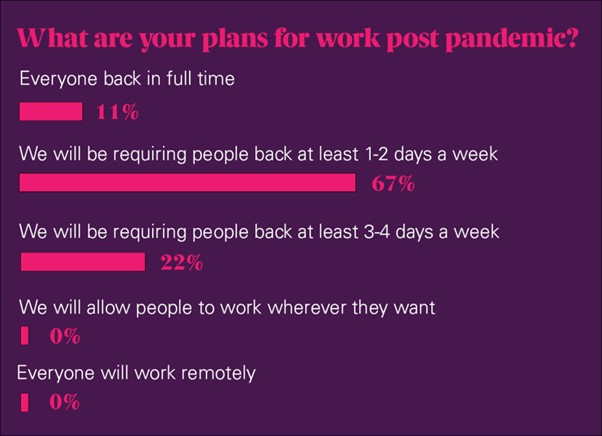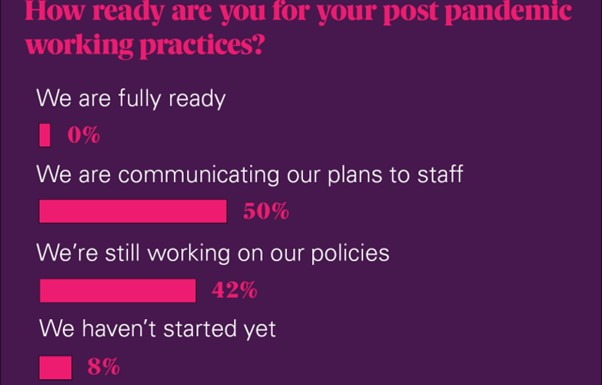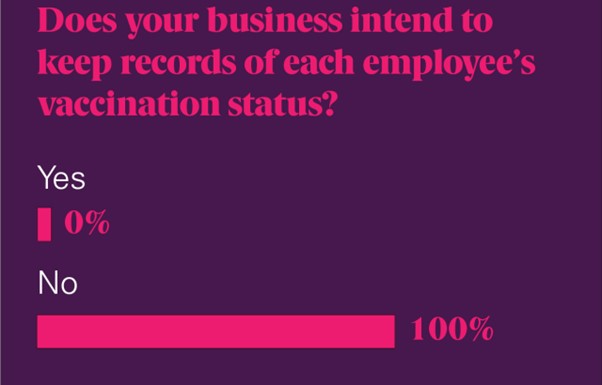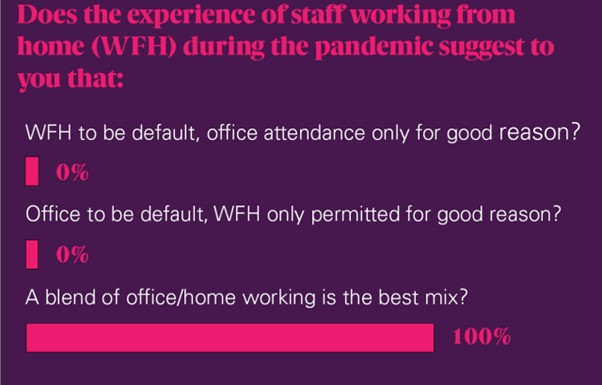Key legal considerations for hybrid working strategies

We were joined by our head of HR Sue Holmes and director of Just Employment Law, David Reid, who explored the key issues employers may encounter and how to put together an effective agile working strategy.
Reid covered four points employers should consider in the face of post pandemic working:
- It’s vital to create agile working policies. Employers shouldn’t fall into the trap of creating a ‘one size fits all’ policy. Agile working policies and decisions will likely need to be created on a personal basis and be flexible, taking into consideration individual needs such as childcare changes and disabilities, which may be more vulnerable to Covid.
- Health and safety is more important than ever. Many employers will be exploring how they can ensure a safe workplace environment for employees. This could include increased risk assessments, social distancing measures in the office, or enhanced cleaning.
- Supporting employees’ mental health is so important, and harder than ever in a remote environment. Managers need to communicate effectively and publicise channels of communication, a great way to do this would be to create an internal mental health hub online.
- Flexible working is usually when employees request to make permanent changes to their terms and conditions of working. A hybrid style of working is slightly less formal and more adaptable than this. However, it’s important to still follow legal considerations.
During the HR Connect session 1 the audience were asked a series of questions about their approach to hybrid working.

Our approach to hybrid working
At Premier, throughout the pandemic many employees have adapted to remote working, and we haven’t had a drop in employee engagement.
When creating a post-pandemic agile working policy, we formed an agile working group. This included employees across all departments, who helped us shape our future of agile working. They helped us with ideas on a new office layout, to the work from home/office balance. This will remain flexible and adaptable, as unfortunately we’re unsure of what the next few months will bring.

The poll response is completely normal – no one is sure what the next few months will bring so no one will feel fully ready.
Line manager training
All managers at Premier have received mental health and wellbeing training, so are equipped to deal with any employee concerns, which may arise when discussions take place about returning to the office. They have also received employment law training on agile working.
We created a ‘home working guide’ at the start of the pandemic. This interactive guide included videos, polls, health and safety information and the latest government guidelines. This will be transformed into our ‘Agile working guide’ from September.
Staying connected
All Premier employees have access to an online training platform, therefore the onboarding process for new starters hasn’t been compromised.
We have continued to run social events (albeit remotely) throughout the pandemic. Once a week all employees are invited to come together to participate in quizzes, competitions and even a spot of virtual yoga!
Case studies
During the session we delved into several case studies such as; what to do if an employee requests to continue to work remotely due to living with a vulnerable person, how to deal with employees refusing to work with unvaccinated staff, and what to do if an employee has requested a pay rise due to new travel costs.
Listen to the full webinar here for these case study discussions.
Q&A
Is it reasonable to ask an employee for their vaccination records?
The answer is generally no. Reid explained that this is not a reasonable request, and on no legal basis this information can be shared with other employees.

What can line managers do if employees are reluctant to come back to the office?
We would suggest a sympathetic approach, make sure to discuss with the employee what their concerns are and if you can assist with any of these. If the nature of the concerns are medical, it’s a good idea to get professional support, e.g. a GP report.
However, if the appropriate risk assessments have been carried out in the office with no concerns raised, then it’s not unreasonable to ask employees back to the office.
Can agile working arrangements be withdrawn at any time?
As an employer, you retain the right to ask employees back to the office for a particular reason. However, it would be a good idea to write this into a policy.

This article is provided by Premier.
Supplied by REBA Associate Member, Premier Benefit Solutions
Premier is an employee benefit, pensions & wealth management group of companies.







